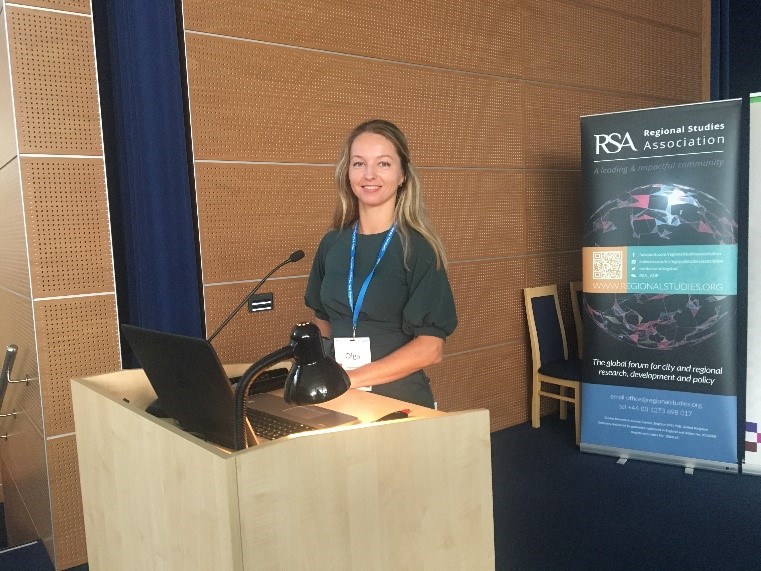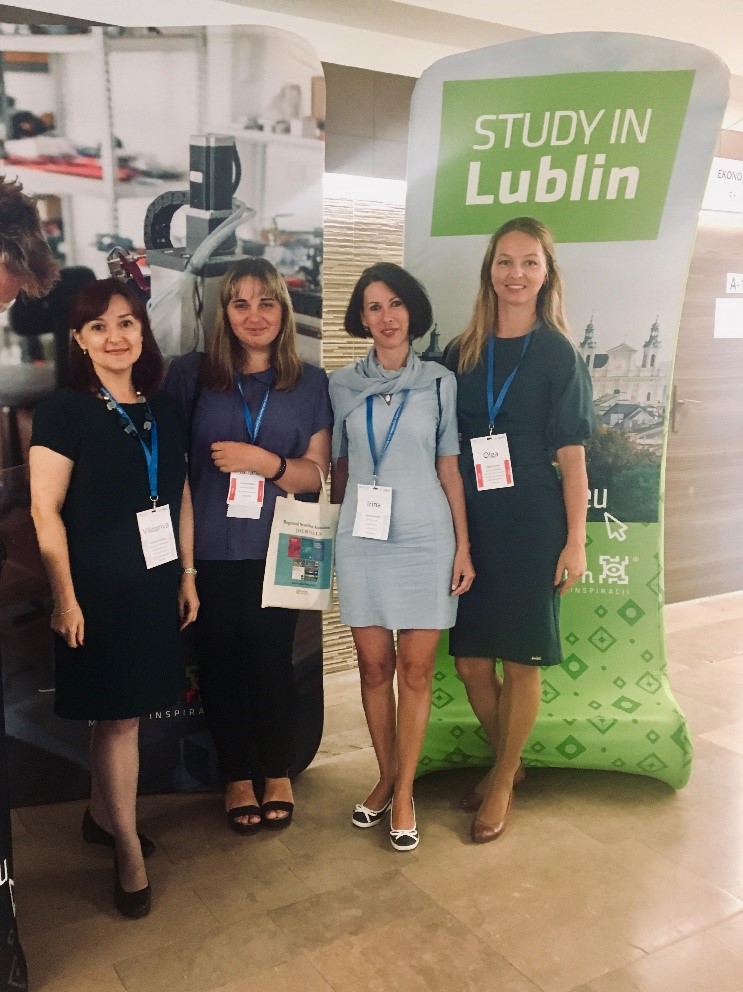By Olga Levytska, Dolishniy Institute of Regional Research of the National Academy of Sciences of Ukraine (Ukraine)
This year I have gained valuable experience by participating in the Regional Studies Association (RSA) Central and Eastern Europe (CEE) Conference ‘Metropolises and Peripheries of CEE Countries: New Challenges for EU, National and Regional Policies’. The Conference was held at Marie Curie-Skłodowska University (UMCS) in Lublin (Poland) on September 11-13. As a 2019 RSA CEE Conference bursary winner, I had the unique opportunity to join the RSA community and present the results of my research on ‘Border Migration Processes in Ukraine: The Polish Vector’.

Participation in this high-level conference allowed me to meet many advanced scientists, statisticians from International Agencies and known policymakers in plenary panels, special sessions and breaks such as during lunch or coffee. The number of participants was incredible – there were more than 100 delegates from Poland, Albania, Azerbaijan, Hungary, Greece, the Netherlands, Bulgaria, United Kingdom, Lithuania, Germany, Italy, Belgium, Ukraine and other European countries. During the three days of the conference, I achieved my scientific purposes by sharing knowledge in the field of ethnic diversity in society and problems of cross-border migration and state migration policy in Ukraine, exchanging my experience with participants and studying best European practices in regional planning and development. While presenting my research in a special session, a wide discussion on the growing flows of Ukrainian labour migrants to Poland arose. By the example of Podkarpackie Voivodeship and Lviv Region, I have proved that local trans-border cooperation accelerated the process of levelling the disparities of regional development and the equalisation of life quality of the population in border regions creating conditions for the free movement of people, goods, services and capital across borders.
The 2019 RSA CEE Conference participation greatly contributed to my familiarisation with the latest activities of foreign researchers and scientific groups, and the establishment of contacts with scientific and teaching staff from UMCS. The plenary speakers defined crucial priorities in EU, national and regional policies, paying particular attention to the actions withstanding socio-economic polarisation in CEE, addressing the problems of EU cohesion and prosperity.

My scientific experience in Lublin was also beneficial for further cooperation in research purposes, for studying the progress in regional and local research in CEE, learning about the practice of forming social and migration policies in EU, their implementation at the regional level, as well as for foreign experience application in Ukraine.
According to the conference programme, many cultural and entertainment events were organised for the participants. One of the most exciting social events was the sightseeing walking tour of Lublin with a local guide who took us on a fascinating journey through the history of an ancient city. It turns out there are many beautiful sights in Lublin, among them: the Lublin Castle, Chapel of the Holy Trinity, Trinity Tower, Lublin’s Old Town, Archcathedral and Grodzka Gate. The Conference closing reception was held at one of the most charming places in Lublin – the Opera Hall in the Centre for the Meeting of Cultures, which is known for its extraordinary exterior and design with endemic gardens on the roof.
The whole organisational process was successfully handled by the RSA team, what made my stay in Lublin as well as work at the Conference very comfortable. Me and all other participants were kindly provided with RSA merchandise products, publications and reports of the Central Statistical Office in Poland and other interesting materials and accessories.
Finally, I would like to express my special thanks to Olga Mrinska, RSA Ambassador in the Ukraine, and to Katharina Bürger, the Conference and Events Officer, for great support and concern during the pre-Conference period and during the Conference itself. I would highly recommend to everyone to join and contribute to further RSA conferences, workshops and events.



